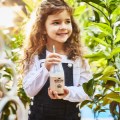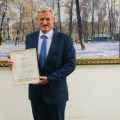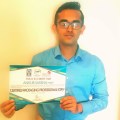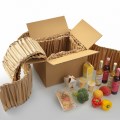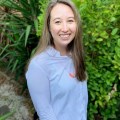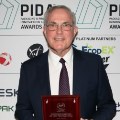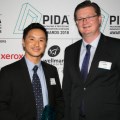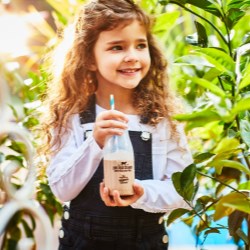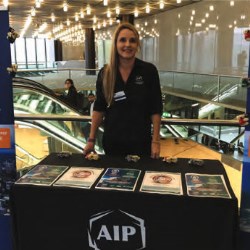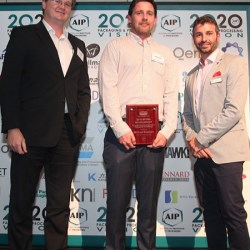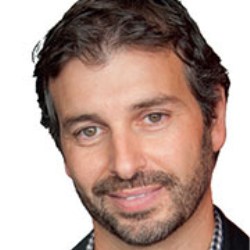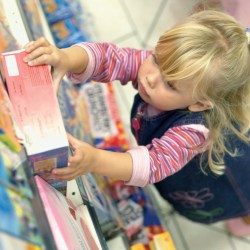If this is your company, CONTACT US to activate Packbase™ software to build your portal.

Vanden Recycling Pty Ltd and South Melbourne Market (Port Phillip City) were the hosts to start the Australian Institute of Packaging‘s 2019 activities.
Vanden has a catch-cry Think Beginning Not End which is the very geneses of the company, which was formed in 2005, and is now far advanced from the beginning and nowhere near the end. The founders envisioned that the commingling of waste and exporting the problems was not sustainable. The Australian branch commenced operating in 2013 with Simon van Leuven in charge.
Just two years later their foresight came into major focus when China placed severe restrictions on the importation of foreign waste. But with a small population Australia would not be able to sustain alternate solutions unless it was done in partnership.
For our tour Simon was joined by his Personal Assistant Laura Calder and Karolina Wojtasik Senior Operations Manager of the Market.
The partnership with South Melbourne Market was formed and is the benchmark for any future developments. Industrial real estate in South Melbourne is around $6000 a square meter and with no free space shoehorning a recycling process was no mean feat. It is somewhat reminiscent of the manufacturer of micro widgets that was so successful that they moved to smaller premises!
At South Melbourne Market, sustainability is something the partners are passionate about and strive to reduce the environmental footprint and create a sustainable Market for future generations to enjoy. The Market continues towards a greener, more sustainable future with initiatives implemented throughout 2016-17
Every processing machine installed is purpose built and has the smallest footprint available, as well as being energy efficient and user friendly. Whilst Melbourne is in the middle of a warm dry spell we were first advised that the Market has a 500,000 litre rainwater tank which in a 'normal rainfall year' will fill and be emptied around two and a half times.
But good comes with bad; the 34 kW PV solar panel system installed on the roof of the car park, loves the sunshine, and has produced 48,580.67 kWh of energy, giving the Market a power reimbursement of approximately $6,000 per year, and an annual reduction of 59 tonnes of CO2 emissions.
Recycling organic waste
Vermicomposting Worm Farm Project:-
Green waste is taken to a worm farm, reducing green waste onsite by approximately 98%. The worms turn it into worm castings or vermicompost. This nutrient-rich vermicompost contains minerals and a highly active biological mixture of bacteria and enzymes that are beneficial to plant growth.
The Market now sells this, combined with mushroom compost as organic fertiliser called Market Magic. Market Magic is described as a garden fertiliser produced by earthworms fed on Market fruit & vegetable waste.
The Gaia Recycling Unit:-
The rest of the organic waste is collected and funnelled into a 1200 litre Gaia machine, improving landfill diversion by over 75%. This machine heats the waste, shreds it and activates a very fast fermentation and dehydration process, turning it into a dry product called SoilFood™ in just ten hours.
SoilFood™ is rich in concentrated nutrients and makes an excellent high-nitrogen, slow release plant fertiliser. Waste that is processed in the Gaia includes coffee grounds, fish offal, waste from restaurants and cafés, left over waste from customers, deli waste, bread, high acidic products such as citrus, pineapples, onions and more.
The Market is processing 8.4 tonnes of waste through the Gaia per week, equating to over 430 tonnes of waste per year diverted from landfill.
The Benefits:-
• Reduction of organic waste in landfill saving landfill space for other purposes and eliminating the anaerobic rotting of the waste which generates methane and leachate.
• Elimination of carbon emissions that result from transporting the waste to landfill.
• What was previously discarded as waste now has an environmental (soil) value.
• The economic payback from the process arises from the long-term reduction or elimination of fees for hiring skips or bins and paying landfill tipping fees.
• Completing the circle on food waste from South Melbourne Market – with nothing to landfill, benefits back to community and the earth.
Shell recycling
In March 2018 the Market started recycling the mussel and oyster shells produced from the Market’s onsite seafood stalls and the Port Phillip Mussel & Jazz Festival.
From March to June 2018 the Market sent 11.8 m3 (3,245 kg) of shells to be used to restore new shellfish reefs in 2019, adding to the 1.5 hectares already restored since 2016. This is a project the Market is working on in collaboration with The Nature Conservancy.
Secondbite
The Market traders donated 32,146 kg of fresh food to SecondBite in the last financial year. This equates to over 64,000 meals to those in need from South Melbourne Market alone.
The biggest proportion of donations was fruit & vegetables making up 67% of the fresh produce donated. SecondBite works with over 1,200 community food programs across Australia to redistribute rescued food to those in our community who need it most.
Recycling packaging materials:-
HDPE Milk bottles:-
Bringing on-site partners on board happened when it was noticed the huge volume of empty milk bottles in the waste stream. A program was put in place so that all of the cafes delivered the empty milk bottles to the collection centre where they are crushed and baled. Due to some bottles having liquid residue a stainless steel compactor manufactured by Mil-Tek was installed.
The material is then sent for reprocessing and the Market has a commitment to install benches, seats made from recycled HDPE. We were also shown samples of water pipes being extruded from the recycle and being used to replace open earth irrigation channels. (In another life, some sixty years ago the writer supervised the loading of newly developed Hume Eslon plastic pipes for a south Gippsland sewage outflow).
Glass containers:-
An onsite crusher demolishes glass containers in the twinkling of an eye! The crushed glass is recycled into glass bottles while 20% of the recovered glass is used in road base & as a paint additive. The size of the crushed glass enables it to be sorted by colour using an optical process.
Oil:-
Approximately 10,800 litres of oil was collected from the Market in 2016-17. The majority of this gets turned into biodiesel which fuels the vehicles owned by the company that collects the oil.
Polystyrene:-
All polystyrene boxes are compacted at the Market in a poly-compactor, and made into polystyrene bricks. This reduces the volume of polystyrene by 98%. The compressed bricks are collected and then melted and remoulded into different plastic products including CD cases, coat hangers, picture frames, toys, and office supplies such as pens, stapler bodies and rulers.
They are also utilised to manufacture wood alternative products such as interior decorative mouldings. Hollow foam blocks are produced that are then stacked and filled with concrete to form building walls. These walls are more sound proof and provide greater thermal insulation, making cooling and heating more efficient.
It was pointed out that throwing empty PS boxes into a skip could cost around $4.50 a kilogram at the landfill gate!
There are 2 common methods for recycling polystyrene. The first is a hot melt extrusion process, with the second being a cold press block machine. Each have their advantages in different applications.
Waste Reduction:-
The Market has three solar bins (Big Belly Bins). These bins are a self-contained compactor bin that reduces waste by compacting it. The bin can therefore hold 560 litres of rubbish compared to the same sized standard 240 litre public bins. The bins also provide real time status and data. The bin sends a message to the collector when it is ready to empty. The collection of the waste is significantly reduced by approximately 75%, saving both time and money. With a compacting ratio of 6:1 the reduction in landfill size is significant.
Epilogue:-
After exploring the secret passageways of the Market we assembled at one of the Cafes and were treated to a sumptuous morning repast. All but three members contributed to the ongoing recycling programs as they ordered milk based coffees. Any food that was not consumed will become SoilFood™ and assist in the growing of more food.
Keith Chessell FAIP on behalf of the Institute and attendees thanked the presenters for a most educational site visit, and handed over a plaque to commemorate the visit.
What the next venture of Vanden Recycling will be is something to look out for, or consider your needs. Based on what we learned it will be the end of a problem and the beginning of a solution.


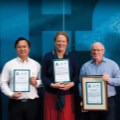
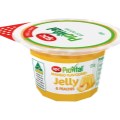
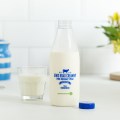
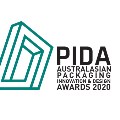
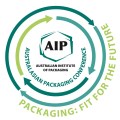
.jpg)

